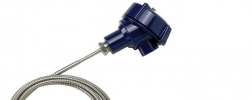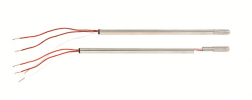Questions and answers about why resistance temperature detectors are ideal for many refining, processing, and manufacturing applications, and what to keep in mind when choosing the RTDs that meet your specifications. Accurate temperature measurement is …
RTD
FAQs About RTDs in Industrial Temperature Measurement
Gabriel Gonzales | TemperatureQuestions and answers about how RTDs measure temperature changes by tracking the variation in electrical resistance in metal wires. The resistance values of the metal wires are known, so resistance value changes are an accurate proxy for temperature changes. A …
Getting to the Bottom of a RTD Sensor Reading Delay
Gabriel Gonzales | TemperatureThe process engineers at a major chemical manufacturer were stumped. They were regularly getting very poor response times from their process temperature sensors and simply could not figure out why. The response times to temperature changes were consistently close to 30 …
4-Wire RTDs vs. 3-Wire RTDs
Gabriel Gonzales | Know-how, TemperatureThe electrical resistance of some materials, such as platinum, copper, and nickel, differs at different temperatures. Resistance temperature detectors (RTDs) take advantage of this property to assess temperature in a variety of commercial and industrial applications. …
When to Use a 3-Wire RTD
Gabriel Gonzales | Know-how, TemperatureRTDs (resistance temperature detectors) are the most common, most versatile temperature sensors in industrial and process applications. They are stable, have good repeatability and work well within a wide range of temperatures. The electrical resistance of some …






